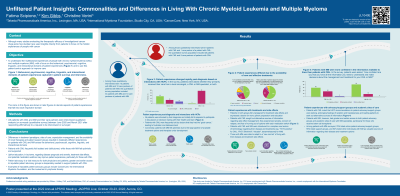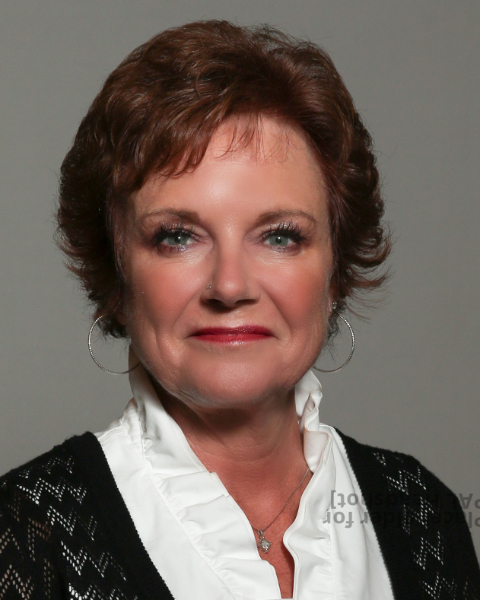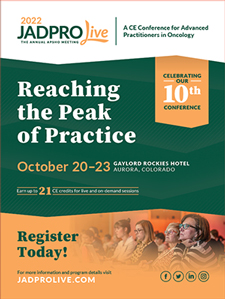Back


Industry Encore Posters
JL1040E: Unfiltered Patient Insights: Commonalities and Differences in Living With Chronic Myeloid Leukemia and Multiple Myeloma
Saturday, October 22, 2022
10:00 AM – 11:00 AM ET

Has Audio

Kim Gibbs, RN, BSN, OCN®
Patient Advocacy Liaison
Takeda Oncology
Highland, Illinois, United States
Poster Presenter(s)
Context:
Many studies evaluating therapeutic efficacy of investigational cancer drugs exist; however, there are few studies using patient insights to focus on the holistic experiences of people with cancer.
Objective:
To understand the multifactorial (ie, behavioral, psychosocial, cognitive, interactional, and linguistic aspects) experiences of people with chronic myeloid leukemia (CML) and multiple myeloma (MM) and use this patient-centric approach to improve care.
Methods:
US patients with CML and MM (34 CML; 48 MM) and their caregivers (10 CML; 20 MM) were interviewed (qualitative analysis) or surveyed (quantitative analysis) between June 2020–March 2021.
Results:
At diagnosis, all patients experienced shock and felt ill-prepared to participate in discussions or decision-making with their health care team; those with CML felt isolated and disillusioned due to physicians’ use of the term “good cancer”, while those with MM were optimistic regarding the plethora of treatment options. Patients in both groups felt unprepared for treatment side effects and wanted more preparatory support and education. However, those with CML experienced anxiety, concern of relapse, and fear of running out of options with each medication switch; conversely, those with MM adapted to a “new normal” of living with their disease and side effects. A lack of physician recommendations to support/advocacy groups for patients with CML prolonged feelings of isolation and hopelessness; those with MM had greater and earlier access to patient advocacy groups and academic care centers, which empowered and supported them.
Conclusions:
Differences in treatment paradigms, sites of care, expectation management, and availability of novel therapies/patient support groups resulted in starkly different holistic experiences for patients with CML and MM. Those with CML frequently felt isolated and disillusioned, while those with MM felt optimistic and supported. Upfront education, in lay terms, regarding prognosis, disease severity, medication side effects, and potential medication switches may improve experiences, especially for those with CML. Patient advocacy is a vital resource and partner for both physician and patient; greater and earlier access to reputable patient advocacy groups is desperately needed to support patients with CML. Examples of these groups include CancerCare, the International Myeloma Foundation, and the Leukemia & Lymphoma Society.
Many studies evaluating therapeutic efficacy of investigational cancer drugs exist; however, there are few studies using patient insights to focus on the holistic experiences of people with cancer.
Objective:
To understand the multifactorial (ie, behavioral, psychosocial, cognitive, interactional, and linguistic aspects) experiences of people with chronic myeloid leukemia (CML) and multiple myeloma (MM) and use this patient-centric approach to improve care.
Methods:
US patients with CML and MM (34 CML; 48 MM) and their caregivers (10 CML; 20 MM) were interviewed (qualitative analysis) or surveyed (quantitative analysis) between June 2020–March 2021.
Results:
At diagnosis, all patients experienced shock and felt ill-prepared to participate in discussions or decision-making with their health care team; those with CML felt isolated and disillusioned due to physicians’ use of the term “good cancer”, while those with MM were optimistic regarding the plethora of treatment options. Patients in both groups felt unprepared for treatment side effects and wanted more preparatory support and education. However, those with CML experienced anxiety, concern of relapse, and fear of running out of options with each medication switch; conversely, those with MM adapted to a “new normal” of living with their disease and side effects. A lack of physician recommendations to support/advocacy groups for patients with CML prolonged feelings of isolation and hopelessness; those with MM had greater and earlier access to patient advocacy groups and academic care centers, which empowered and supported them.
Conclusions:
Differences in treatment paradigms, sites of care, expectation management, and availability of novel therapies/patient support groups resulted in starkly different holistic experiences for patients with CML and MM. Those with CML frequently felt isolated and disillusioned, while those with MM felt optimistic and supported. Upfront education, in lay terms, regarding prognosis, disease severity, medication side effects, and potential medication switches may improve experiences, especially for those with CML. Patient advocacy is a vital resource and partner for both physician and patient; greater and earlier access to reputable patient advocacy groups is desperately needed to support patients with CML. Examples of these groups include CancerCare, the International Myeloma Foundation, and the Leukemia & Lymphoma Society.

